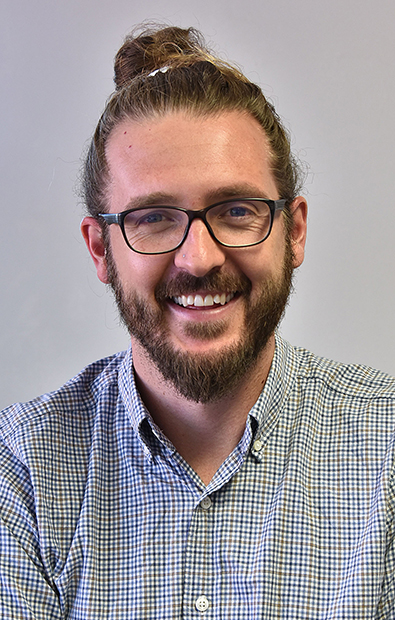Latest News Archive
Please select Category, Year, and then Month to display items
11 January 2021
|
Story André Damons
|
Photo Supplied
 Dr Ralph Clark
Dr Ralph Clark
The Afromontane Research Unit (ARU), the flagship research group of the University of the Free State (UFS) Qwaqwa Campus, has recently been granted R8,4 million to establish a Risk and Vulnerability Science Centre programme.
The Risk and Vulnerability Science Centre (RVSC) programme was established by the Department of Science and Innovation (DSI) as part of the Global Change Research Plan for South Africa and is funded by the DSI through the National Research Foundation (NRF). The RVSC will focus on the need to generate and disseminate knowledge about risk and vulnerability on global change challenges faced by local policy makers/ governance structures and communities in South Africa.
Invited to participate
Dr Ralph Clark, Director of the ARU, says the UFS, together with the University of Zululand and the Sol Plaatje University, has been invited to participate in Phase 2 of the RVSC programme. Dr Clark was approached by the DSI (on referral from the South African Environmental Observation Network – SAEON) in February 2020 regarding the potential for establishing a RVSC at the UFS Qwaqwa campus.
Subsequent interactions were held between the UFS and DSI, and in March 2020, the UFS formally accepted the DSI invitation. It has since been agreed that the RVSC: UFS will be hosted as a RVSC under the ARU umbrella, with dedicated personnel embedded at the UFS in this regard (internal processes and reporting) but reporting directly to the NRF regarding the RVSC.
Interest and support welcomed
Dr Clark welcomed this interest and support from the DSI-NRF, saying that the funds will further assist the UFS in growing its excellent and growing research portfolio and building more research capacity on this traditionally undergraduate-focused campus. “The RVSC will contribute to much-needed solutions in an area marked by major sustainability challenges and will assist in moving Phuthaditjhaba away from its negative apartheid history towards becoming a sustainable African mountain city,” says Dr Clark.
Newton Fellow at UFS focuses on land and labour
2017-10-28

Dr Rory Pilossof
Photo: Charl Devenish
Dr Rory Pilossof is a senior lecturer in economics at the University of the Free State (UFS), a Postdoctoral Fellow at the International Studies Group at UFS, and a Research Fellow at the University of Kent in the UK.
He became interested in his research field when he studied land reform and land issues in Zimbabwe for his PhD at the University of Sheffield. From there, his research interests have expanded to look at other issues connected to land, such as whiteness and labour.
Dr Pilossof's study field links up with the important issue of land reform in Southern Africa due to its past colonialism and post-colonial politics of land and land ownership. These intersect with a wide range of labour issues that are pressing in the region. He has a keen interest in elite transitions and changes in economic structure in Southern Africa since the 1960s.
Dr Pilossof was nominated to the South African Young Academy of Science in 2017, and received an NRF Y1 rating during 2017. He is also a member of the Amsterdam-based International Institute for Social History’s ‘Global Collaboratory on the History of Labour Relations’. He is a participant in the Leverhulme Trust-funded initiative ‘Comparative History of Political Engagement in Western and African Societies Programme’ at the University of Sheffield.
Dr Pilossof's primary research focuses on issues of land, labour and changing social and economic structures in Zimbabwe and South Africa. He is also interested in finding alternative ways of looking at change. To this end, he has studied various newspapers and periodicals in the region.
Currently, he spends most of his research time as part of a three-year British Academy-funded Advanced Newton Fellowship into labour relations and occupational structures. In future, he wants to expand his research in the labour field by looking at labour and migration in the region over the course of the 20th century.